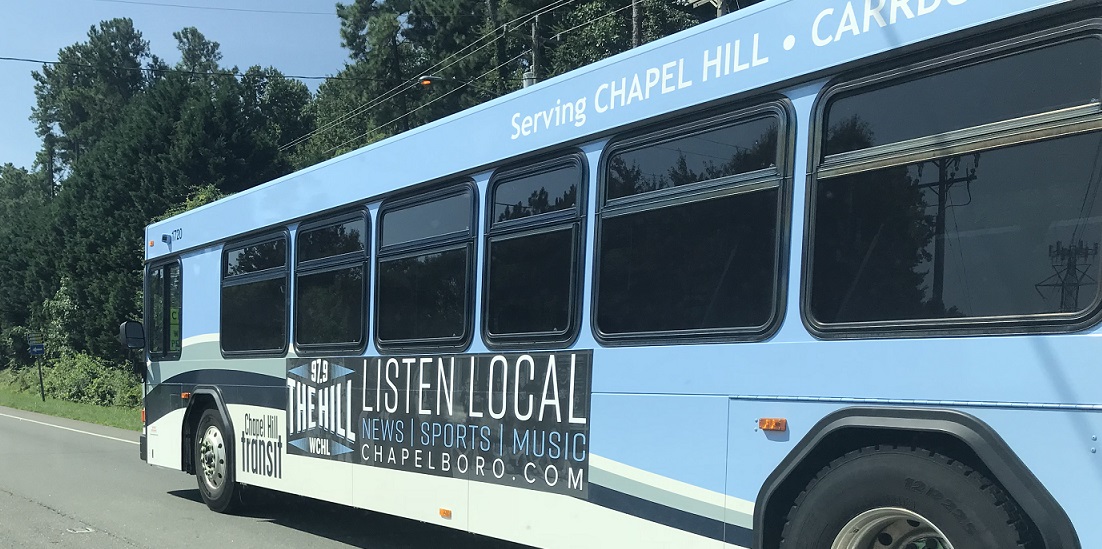Three new electric-battery buses will soon join the Chapel Hill Transit fleet, after the Town Council approved the selection of a manufacturer at a recent meeting.
The zero-emission buses will be made by Gillig LLC, the bus manufacturer the town has used for most of its current fleet and who announced a new electric bus in May. Although the town entered a contract with Gillig as recently as April 2017, the project was open for bids from any manufacturers.
The purchase of the three buses is the first step in the town’s pilot program exploring the feasibility of having a full fleet of buses that produce significantly less carbon emissions and noise.
Town Manager Maurice Jones explained to the council the reasoning behind choosing the pilot program approach and how it will operate with the new electric buses.
“We didn’t want to make a major commitment without understanding the impact that [they will make] and whether the buses are working as well as we have anticipated in Chapel Hill,” said Jones. “We will be collecting data on use and maintenance, so that will give us a good baseline to make a decision about future purchases of buses and how it will fit within our climate action plan.”
Chapel Hill Transit has made efforts in the past to reduce emissions from the second largest transit system in the state. Of their 93 buses, 29 of them are diesel-electric hybrids and many more have technology built in to eliminate some pollutants from their exhaust.
Nearly half of the $2.8 million cost of the three electric buses and two charging stations will be covered by a grant from the Federal Transit Administration. Additional funds from the Renewable Energy Special Projects Committee at UNC and the Chapel Hill Transit Capital Reserve will also be used. If up to satisfaction, the town will have the option to purchase 19 additional electric buses under their agreement with Gillig.
Before that happens, however, the buses must hit the road in Chapel Hill. Jones said once they do, their performances will be monitored carefully.
“We will see how [the buses] respond, their quality, and the quality of the support of the buses well before we make a decision about the next phase of this process.”
At the meeting, town staff estimated it would take between 18 and 24 months for Gillig to build the buses and for them to be implemented within Chapel Hill Transit’s fleet.
Related Stories
‹
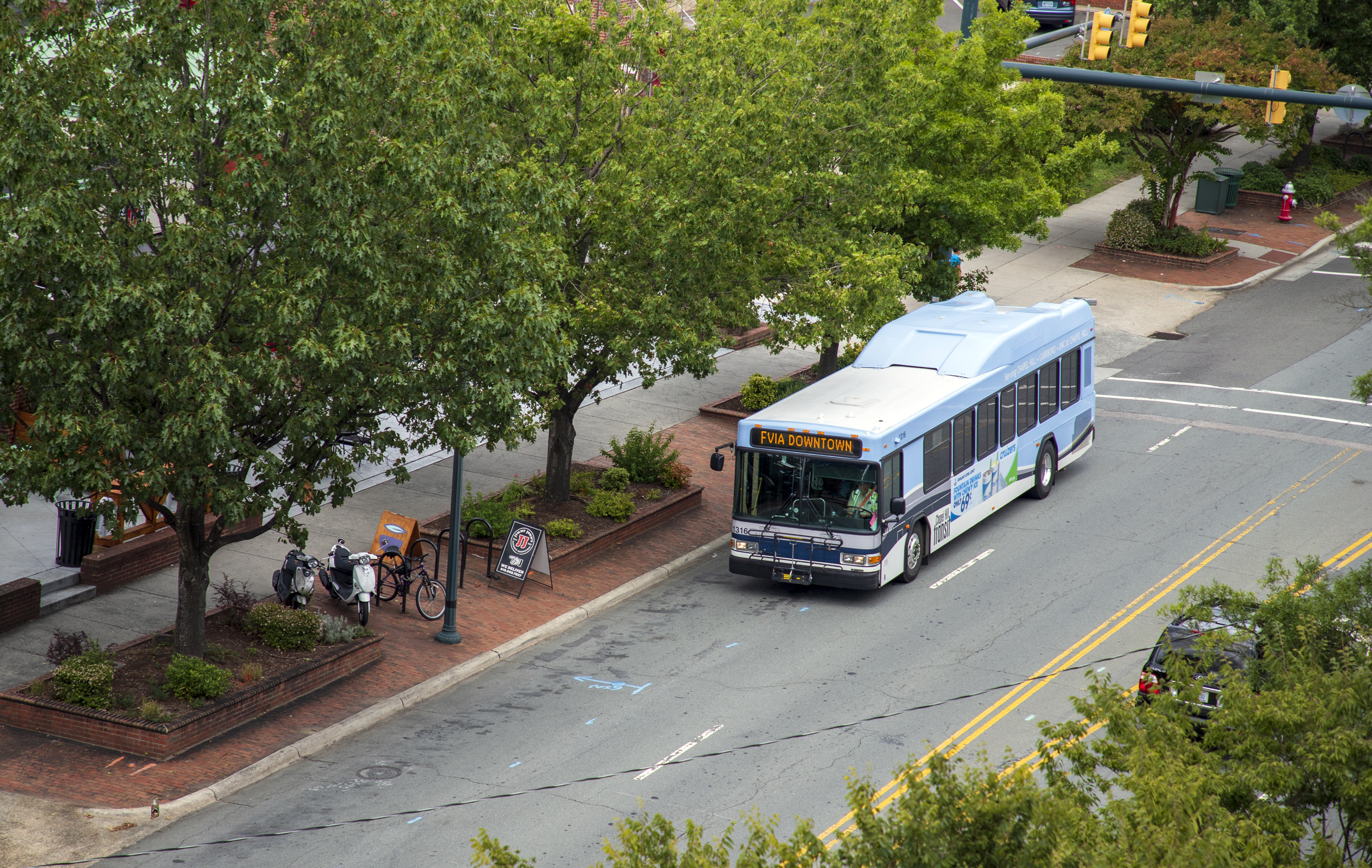
Chapel Hill Transit Lands $24.4 Million in Federal Grants for Bus Rapid Transit ProjectChapel Hill Transit's future bus rapid transit project got a funding boost, with $24.4 million in federal grants announced Wednesday.
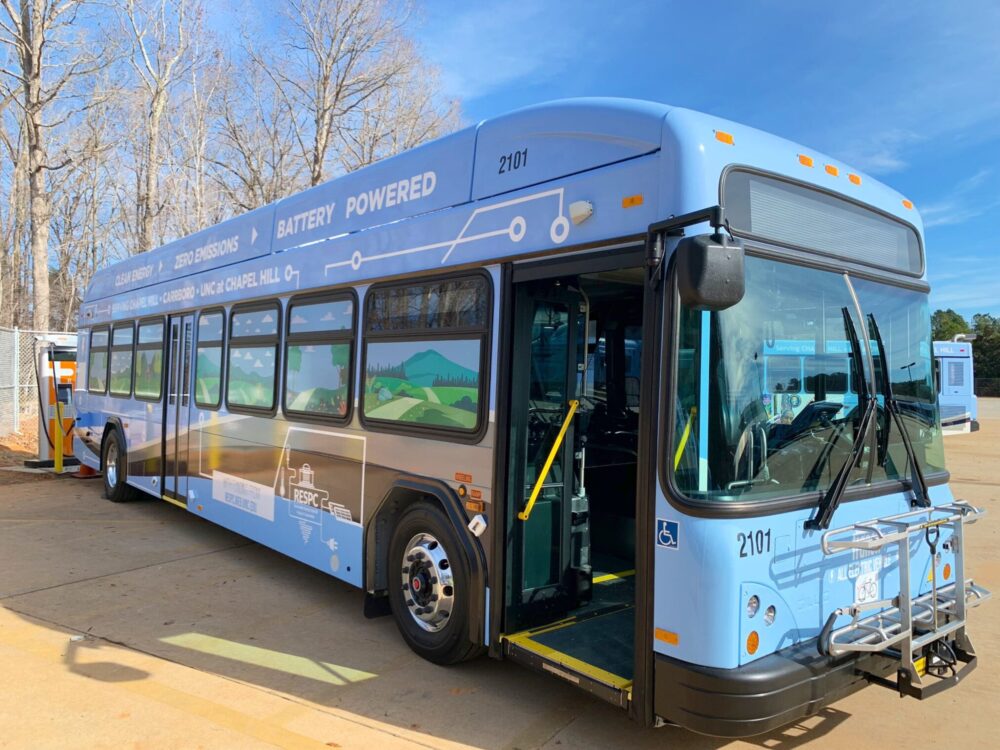
Electric Bus Fire Causes Chapel Hill Transit to Temporarily Pull Vehicles From Its FleetA fire on an electric Chapel Hill Transit bus on Tuesday is causing the local transit system to hold its other electric buses out of service.
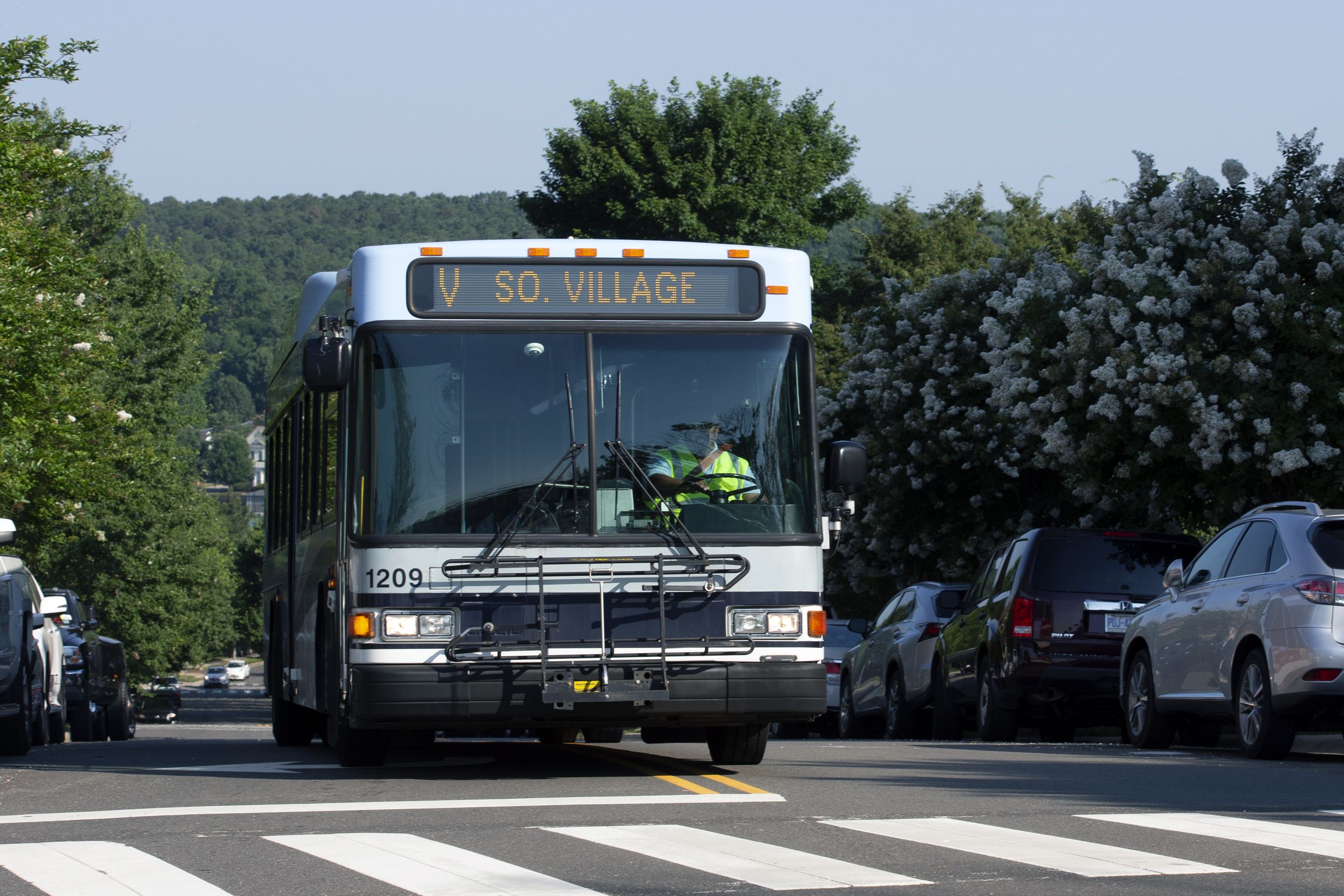
Chapel Hill Transit Marks 20th Anniversary of Fare-Free ServiceWhen people hopped onto a Chapel Hill Transit bus this weekend, they may have thought about making sure they were on the correct route, what time it was or whether they were wearing a face mask. But one thing they didn’t have to think about? Having to pay for the ride. According to the transit […]
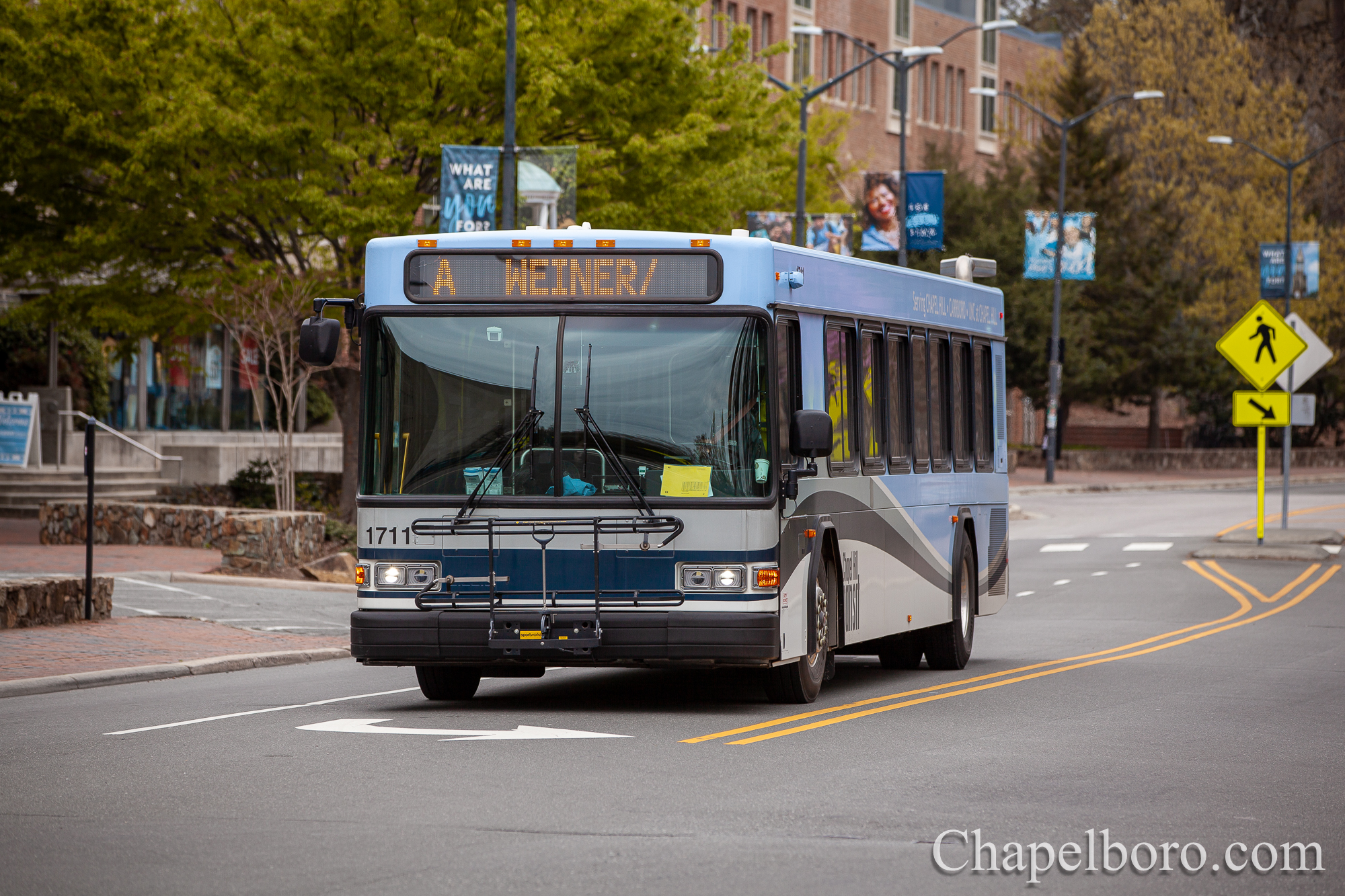
Thanksgiving Holiday to Affect Local Government Services in Orange County (2025)Thanksgiving will fall on Thursday, November 27 this year, and the holiday will affect several local government services around the Orange County community. Here’s a rundown of what residents can expect: Town of Chapel Hill Thursday, November 27 and Friday, November 28 are both town holidays. Residential trash collection will not be affected. However, there […]

New Chapel Hill Stop Added to NCDOT Intercity Bus ServiceThe North Carolina Department of Transportation’s intercity bus service is adding a new stop in Chapel Hill. Buses will pick up passengers at the Eubanks Park and Ride Lot in Chapel Hill four times a day. The lot is located at 2000 Eubanks Road in the Carraway Village mixed-use development. The intercity service is operated […]

Memorial Day to Affect Local Government Services Around Orange County (2025)The observation of Memorial Day on Monday, May 26 will affect multiple local government services around the Orange County community. Here’s a complete list of which services in which towns will be moved due to the holiday: Town of Chapel Hill Memorial Day is an official town holiday. Most town and other administrative offices will […]
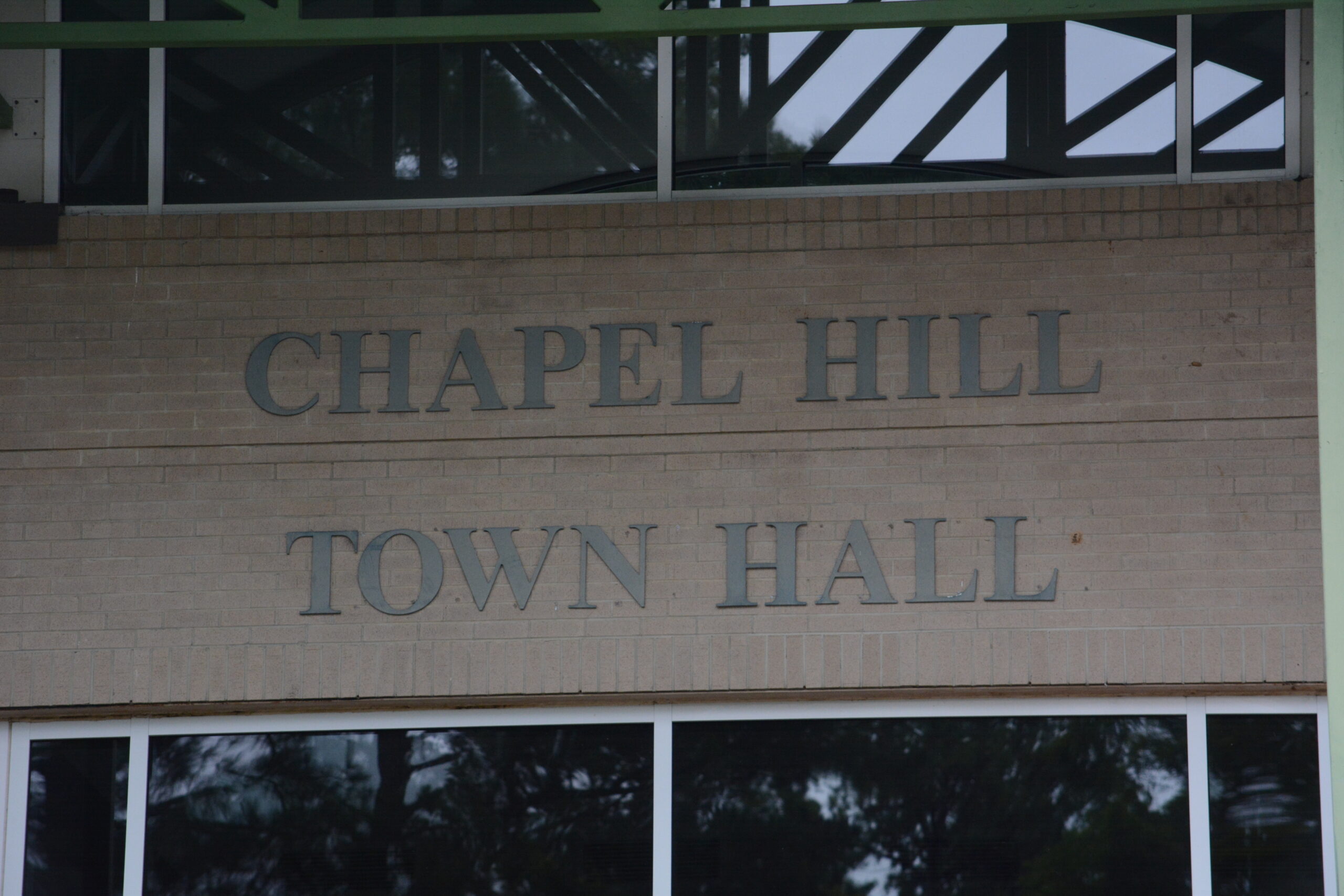
Chapel Hill's 2025 Mayoral Race Gains Its First Candidate. Here's Who It IsChris Suttle, a cannabis lobbyist and consultant, announced his plans to run for Chapel Hill mayor during an open mic event Tuesday night.
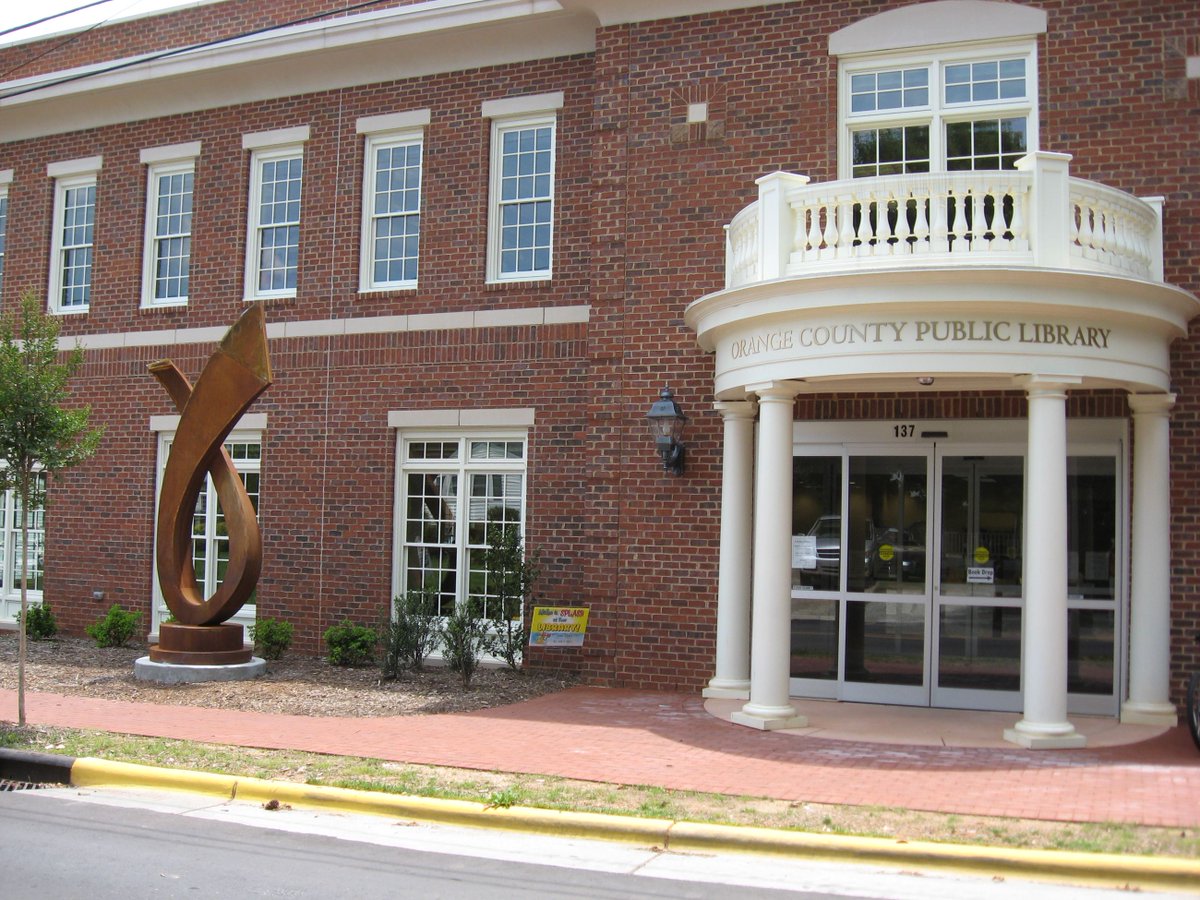
Christmas Holiday to Affect Local Government Services in Orange County (2024)The Christmas holiday will affect several local government services. Here’s a rundown of what Orange County residents can expect.
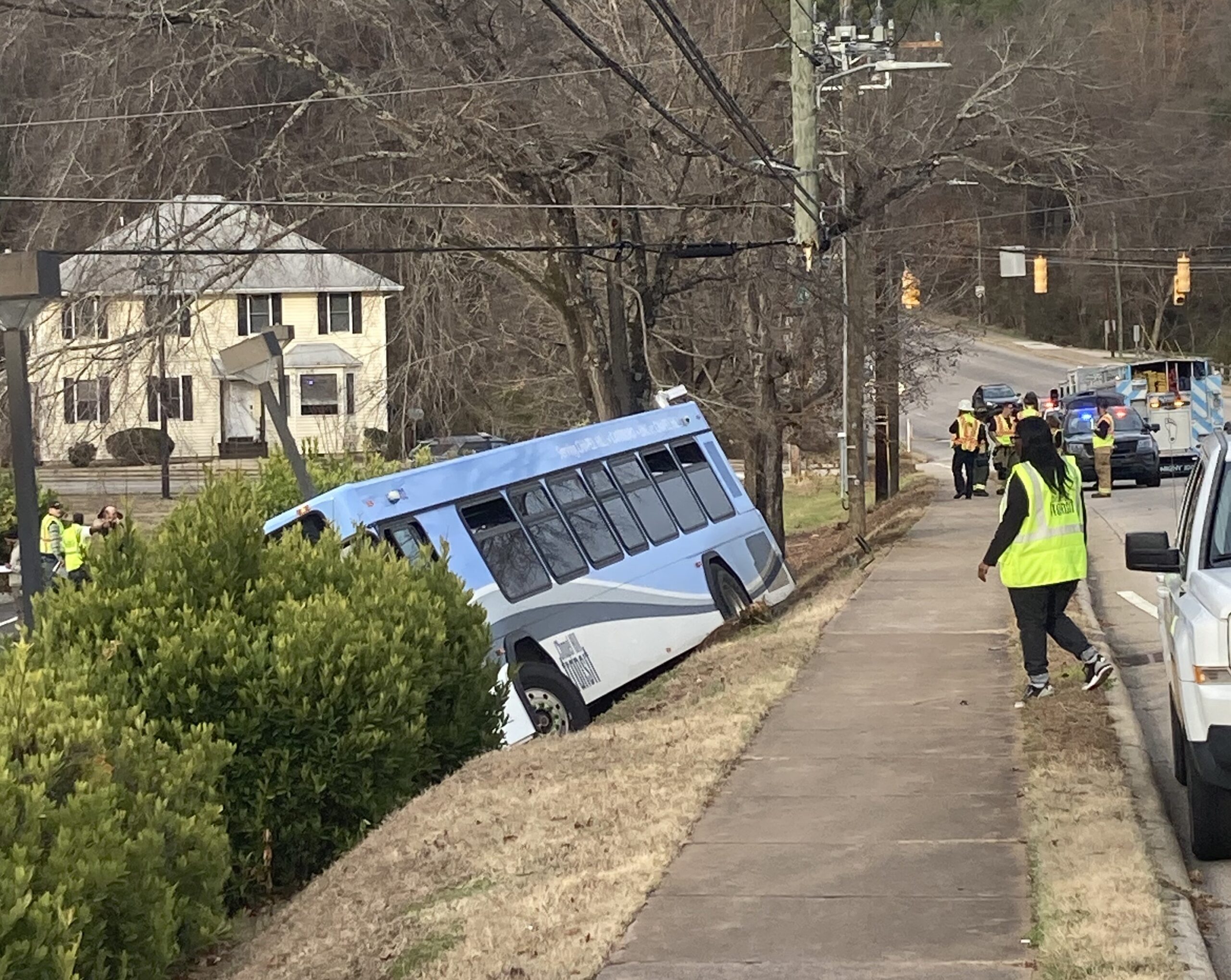
Chapel Hill: Bus Crash Injures 1 As Vehicle Rolls After Driver's ExitA town release said police responded to a Chapel Hill Transit bus crash at 2:48 p.m. along Martin Luther King Jr. Boulevard.

Chapel Hill Transit Announces Updates For 2025, Including Routes Returning to Full ServiceAfter operating at a deficit of service for nearly five years, the Chapel Hill Transit system is set to fully restore some of its routes in the new year. The local bus system said earlier in December that five routes with limited service times and frequency will return to full operations, as well as one […]
›

